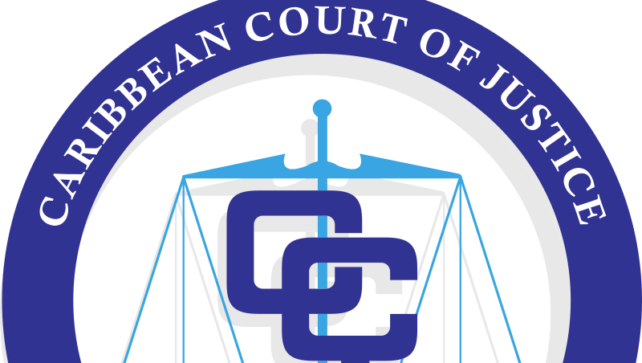
On Tuesday, 19th March 2024, the Caribbean Court of Justice (CCJ) delivered reasons for the decision in Maurice Arjoon v The New Building Society Ltd, Trust Company (Guyana) Ltd, Executor of the Estate of Ahmad Khan, Seepaul Narine and Nizam Mohamed [GYCV2023/002], a decision in its Appellate Jurisdiction. The CCJ reversed the decision of the Court of Appeal of Guyana. In keeping with its commitment to access to justice, this was the first time the CCJ integrated a sign language interpreter into its judgment delivery process.
On 14 August 2007, after a course of employment spanning almost 30 years, the New Building Society Ltd (NBS) terminated the employment of Mr Maurice Arjoon as company Director/Secretary/CEO for what they alleged was ‘serious misconduct’. Mr Arjoon was due to retire six months later at age 60. Mr Arjoon had made pension contributions over the years, and so did NBS on his behalf.
Mr Arjoon initiated proceedings in the High Court, asserting that he had been wrongfully dismissed. The trial judge, Justice Reynolds, upheld the claim, and found that Mr Arjoon had been wrongfully and unlawfully dismissed. Justice Reynolds awarded Mr Arjoon a payment in lieu of notice, severance benefits, and a lump sum representing full pension benefits up to 30 June 2017, and thereafter a monthly pension until his death.
On appeal, the Court of Appeal agreed with the trial judge’s finding that Mr Arjoon had been wrongfully dismissed, but reversed the trial judge’s award of full pension benefits, and instead awarded Mr Arjoon a sum representing the pooled pension contributions of both Mr Arjoon and NBS over the years.
Mr Arjoon appealed to the CCJ. The respondents cross-appealed. The appeal and cross-appeal were heard on 10 October 2023. On 23 October 2023, the CCJ made an order setting aside the judgment of the Court of Appeal and restoring the order of Justice Reynolds; reserving, however, the issue of Mr Arjoon’s entitlement to severance pay until the CCJ issued its reasons for decision.
In its reasons, the Judges were agreed that Mr Arjoon had been wrongfully dismissed, and that he was entitled to full pension benefits as ordered by Justice Reynolds. On the issue of Mr Arjoon’s claim to severance payment under the Termination of Employment and Severance Pay Act (TESPA), the Court was divided 3-2.
Justice Denys Barrow, writing for the majority which included President Adrian Saunders and Justice Peter Jamadar, explained that it could be considered that Mr Arjoon involuntarily retired and was therefore entitled to receive his full pension benefits. As to Mr Arjoon’s claim to severance pay in addition to pension, however, Justice Barrow underscored that since full pension benefits were to be paid to Mr Arjoon as if he had retired, the argument that severance pay should be paid because Mr Arjoon was terminated and was thus unable to retire, could not succeed. In separate concurring opinions, President Saunders and Justice Jamadar agreed with Justice Barrow’s conclusions.
Justices Maureen Rajnauth-Lee and Andrew Burgess concurred with the majority except on the decision refusing severance pay to Mr Arjoon. They were of the view that having regard to the policy behind TESPA, Mr Arjoon was entitled to both his full pension benefits and severance pay.
The matter was heard by the Honourable Mr. Justice Adrian Saunders, President and the Honourable Justices Maureen Rajnauth-Lee, Denys Barrow, Andrew Burgess, and Peter Jamadar.
Mr Edward A Luckhoo SC with Mr C V Satram, Mr Ron Motilal, and Ms Eleanor Luckhoo appeared for the appellant. Mr Stephen Fraser SC with Mr Teni Housty and Ms Shantel Scott-Lall appeared for the respondents.
About the Caribbean Court of Justice
The Caribbean Court of Justice (CCJ) was inaugurated in Port of Spain, Republic of Trinidad and Tobago on 16 April 2005 and presently has a Bench of six judges presided over by CCJ President, the Honourable Mr Justice Adrian Saunders. The CCJ has an Original and an Appellate Jurisdiction and is effectively, therefore, two courts in one. In its Original Jurisdiction, it is an international court with exclusive jurisdiction to interpret and apply the rules set out in the Revised Treaty of Chaguaramas (RTC) and to decide disputes arising under it. The RTC established the Caribbean Community (CARICOM) and the CARICOM Single Market and Economy (CSME). In its Original Jurisdiction, the CCJ is critical to the CSME and all 12 Member States which belong to the CSME (including their citizens, businesses, and governments) can access the Court’s Original Jurisdiction to protect their rights under the RTC. In its Appellate Jurisdiction, the CCJ is the final court of appeal for criminal and civil matters for those countries in the Caribbean that alter their national Constitutions to enable the CCJ to perform that role. At present, five states access the Court in its Appellate Jurisdiction, these being Barbados, Belize, Dominica, Guyana and Saint Lucia. However, by signing and ratifying the Agreement Establishing the Caribbean Court of Justice, Member States of the Community have demonstrated a commitment to making the CCJ their final court of appeal. The Court is the realisation of a vision of our ancestors, an expression of independence and a signal of the region’s coming of age.

Disclaimer: The comments posted do not necessarily reflect the views of DominicaNewsOnline.com and its parent company or any individual staff member. All comments are posted subject to approval by DominicaNewsOnline.com. We never censor based on political or ideological points of view, but we do try to maintain a sensible balance between free speech and responsible moderating.
We will delete comments that:
See our full comment/user policy/agreement.